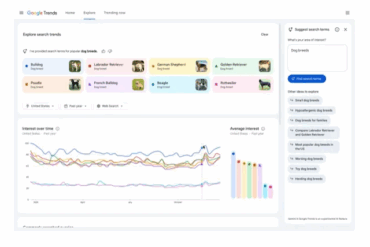With no buyer in sight, Made.com is set to become one of the first casualties of the UK’s recession. Is it a one-off, or is it a signal of what’s to come for e-commerce?
Made-to-order retailer Made.com stopped trading today (October 26) after talks of a buyout fell through, switching off its e-commerce site and replacing it with a holding image of a dog in a bed and a message telling customers to ‘sit tight, we’ll be back soon.’
The business is short of the £70m it needs to survive the next 18 months and, as a result, the share price plummeted by 93% to 1/2p after the announcement came that it had shut up shop.
But it is far from an isolated case. It follows brands such as Eve Sleep, which filed for administration in June (it was saved by rival Benson for Beds). The mattress D2C business was a darling from the pandemic boom era when consumers were stuck at home investing in delivery homeware and sales were on the up for brands including Emma, Hypnia and Simba.
There are tough times ahead. It wasn’t long ago e-commerce fashion brand Missguided was salvaged by the ever-hungry Fraser Group, and just last week the UK’s biggest online vegan supermarket The Vegan Kind went bust, only to be later saved by an individual shareholder.
Nicola Strange, senior problem solver and impact lead at B+A agency, says category disruptors like Made.com will also find themselves unable to survive.
“Stalwarts can use their vast infrastructures to pivot and respond to rivals, as John Lewis has with its Anyday collection of homewares and fashion,” she says. But for challengers like Made, Strange says they need a way of “adding value, such as social impact commitments, robust sustainability or an overriding brand purpose to keep customers loyal.”
It’s a bleak picture as retailers are suffering from a combination of supply chain issues, spiralling business costs, a living cost crisis tightening consumer purses and a pandemic boom that created an inflated success.
On Monday (October 24) EY-Parthenon’s latest Profit Warnings report revealed 86 UK-listed businesses hit the red zone in the third quarter of 2022 – the highest Q3 performance since the 2008 recession.
The rise and fall of Made.com
Made set up shop in 2011 as an upmarket online-only furniture and homeware delivery brand. It was alone in a niche that was soon crowded by brands such as Wayfair, Habitat, La Redoute and Swoon. The company went public in July 2021 when it was valued at £775m, below its £1bn predicted market valuation. Herschel Ozturk-Walker, marketing manager at Brandwidth, tells The Drum: “Perhaps one can ultimately question the decision to ‘rush’ into public trading during volatile times.”
At the time its IPO was questioned as the company was struggling with achieving profitability at scale.
Ozturk-Walker adds: “Imagine being both the beneficiary and victim of the same thing … For Made.com, the Covid-lockdown phenomenon presents not only their single largest opportunity for growth, but also their greatest risk.”
Strange suggests instead that Made suffered from a disconnect between the external brand and the internal company.
Made-to-order retailer Made.com stopped trading today (October 26) after talks of a buyout fell through, switching off its e-commerce site and replacing it with a holding image of a dog in a bed and a message telling customers to ‘sit tight, we’ll be back soon.’
The business is short of the £70m it needs to survive the next 18 months and, as a result, the share price plummeted by 93% to 1/2p after the announcement came that it had shut up shop.
But it is far from an isolated case. It follows brands such as Eve Sleep, which filed for administration in June (it was saved by rival Benson for Beds). The mattress D2C business was a darling from the pandemic boom era when consumers were stuck at home investing in delivery homeware and sales were on the up for brands including Emma, Hypnia and Simba.
There are tough times ahead. It wasn’t long ago e-commerce fashion brand Missguided was salvaged by the ever-hungry Fraser Group, and just last week the UK’s biggest online vegan supermarket The Vegan Kind went bust, only to be later saved by an individual shareholder.
Nicola Strange, senior problem solver and impact lead at B+A agency, says category disruptors like Made.com will also find themselves unable to survive.
“Stalwarts can use their vast infrastructures to pivot and respond to rivals, as John Lewis has with its Anyday collection of homewares and fashion,” she says. But for challengers like Made, Strange says they need a way of “adding value, such as social impact commitments, robust sustainability or an overriding brand purpose to keep customers loyal.”
It’s a bleak picture as retailers are suffering from a combination of supply chain issues, spiraling business costs, a living cost crisis tightening consumer purses and a pandemic boom that created an inflated success.
On Monday (October 24) EY-Parthenon’s latest Profit Warnings report revealed 86 UK-listed businesses hit the red zone in the third quarter of 2022 – the highest Q3 performance since the 2008 recession.
The rise and fall of Made.com
Made set up shop in 2011 as an upmarket online-only furniture and homeware delivery brand. It was alone in a niche that was soon crowded by brands such as Wayfair, Habitat, La Redoute and Swoon. The company went public in July 2021 when it was valued at £775m, below its £1bn predicted market valuation. Herschel Ozturk-Walker, marketing manager at Brandwidth, tells The Drum: “Perhaps one can ultimately question the decision to ‘rush’ into public trading during volatile times.”
At the time its IPO was questioned as the company was struggling with achieving profitability at scale.
Ozturk-Walker adds: “Imagine being both the beneficiary and victim of the same thing … For Made.com, the Covid-lockdown phenomenon presents not only their single largest opportunity for growth, but also their greatest risk.”
Strange suggests instead that Made suffered from a disconnect between the external brand and the internal company.




